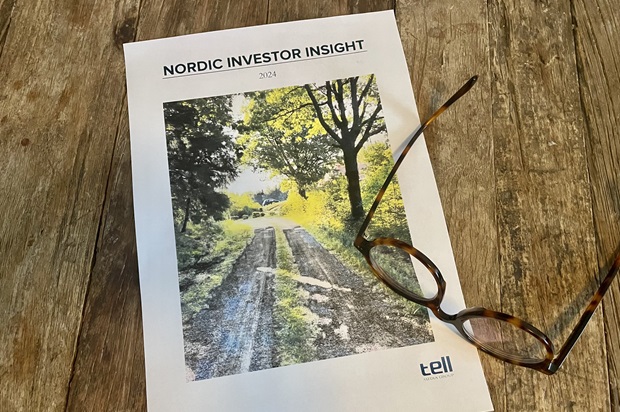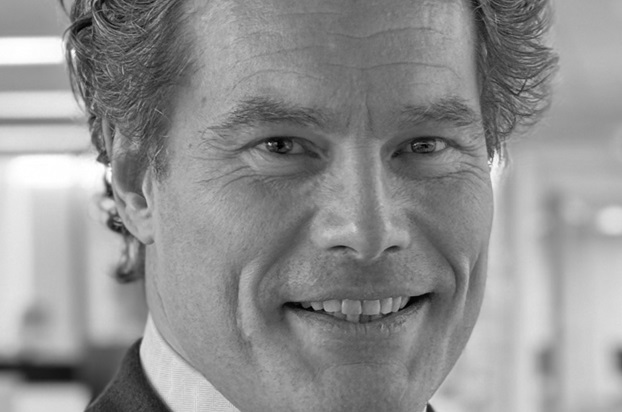
ESG reporting, due diligence challenges and defining core investments
Earlier this spring, Tell Media Group, in cooperation with Invesco Real Estate, M&G Investments and Principal Global Investors, invited Nordic investors to discuss real estate. Tell Media Group founder Niklas Tell moderated the roundtable.
The discussion started out with Niklas Tell asking the participants what they would highlight as some of the biggest challenges for investors right now when it comes to real estate.
VANESSA LINZANDER: “One challenge is forecasting and preparing for the escalating demographic trends that are moving extremely fast now with the pandemic. Another challenge is to figure out what the ESG impact will be on real estate. Will we end up with a number of obsolete assets and how do we prepare for that? There are also questions of what will happen to office space and what the long-term impact on retail will be.”
ANDREW HILLS: “I would certainly agree on ESG. That has been top of the agenda over the last six to nine months and something we’re very aware of when launching new funds.”
TOBIAS SPILLING: “I very much agree – sustainability takes up a lot of my time. There’s a huge demand from my clients – both when it comes to sustainability reporting but also on implementation of sustainability in the funds. Another challenge is the transition to a post-Covid environment. How will offices change and how will real estate be affected by the move from traditional retail to more modern retail and logistics? We’ve also been in an environment of falling interest rates for a very long time, which now seems to be changing. The question is how that will affect returns going forward.”
EVA LEMPINEN: “I think one thing to watch out for is inflation and what rising inflation would mean for real estate. We’re also still living through the Covid situation and it’s a question of how fast the recovery will be in different parts of the world. Another thing that occupies me is the price of new technology, its impact on real estate and how this could help in ESG matters. We’ve seen a lot of things happening over the last year.”
RICHARD VAN DEN BERG: “What’s taking place in Asia-Pacific is in essence not that different from what’s taking place in the rest of the world. However, there are some differences and one of the challenges is to articulate those differences. For example, what will happen to offices is a really big question in Europe and in the US as working from home is much more common and accepted, even before the COVID period, but it’s far less of an issue in Asia. It’s important to make a distinction between short-term and long-term trends and to be very careful that you don’t change longer term strategies because of short-term events or events that only have a short-term impact, even if that impact is severe. I also feel there’s a general tendency to put certain asset classes on a pedestal, such as logistics currently, whereas others are put in the basement, so to speak. The latter would be retail, which used to be the favoured asset class for core investors. However, if I look at Asia, the importance of retail is very visible. Well-located and managed malls are part of the social fabric of society and some retail assets in particular the community centres in Singapore and Australia have even during COVID provided relatively stable income streams while values remain protected.”
NIKLAS TELL: Andrew, when we spoke before this call, you mentioned that when you talk to your colleagues around the world, it seems as if a lot of people are reacting to what’s happening around them.
ANDREW THORNTON: “Exactly. I think there’s a risk that our view of the world is dominated by what’s happening on our doorstep. When I talk to my US colleagues, they’re bullish. Vaccinations are happening and they’re expecting a GDP growth of some 6 or 7 per cent this year. But if you talk about retail, they’re very negative on the sector while our experience from Germany, where we have a lot of convenience retail, is that rent collection has been some 97 per cent over the course of 2020 and we see capital appreciation. That’s not what people expect retail to be doing but that’s what we’re seeing on the ground. I therefore agree that there’s this disconnect between the occupier market and the capital market and that can create both risk and opportunities.”
The roundtable discussion was published in issue 03 of Nordic Fund Selection Journal and a PDF of the complete story can be found here.
//Participants
- VANESSA LINZANDER, Investment manager, AP1
- EVA LEMPINEN, Portfolio manager, OP
- PIA BASTRUP, Chief portfolio strategist, Pensam
- TOBIAS SPILLING, Partner & head of real estate, Grieg Investor
- ANDREW HILLS, Managing director of client portfolio management, Invesco Real Estate
- RICHARD VAN DEN BERG, Fund manager of the M&G Asia Property Fund, M&G Investments
- ANDREW THORNTON, Chief executive of Principal Real Estate Europe, Principal Global Investors



